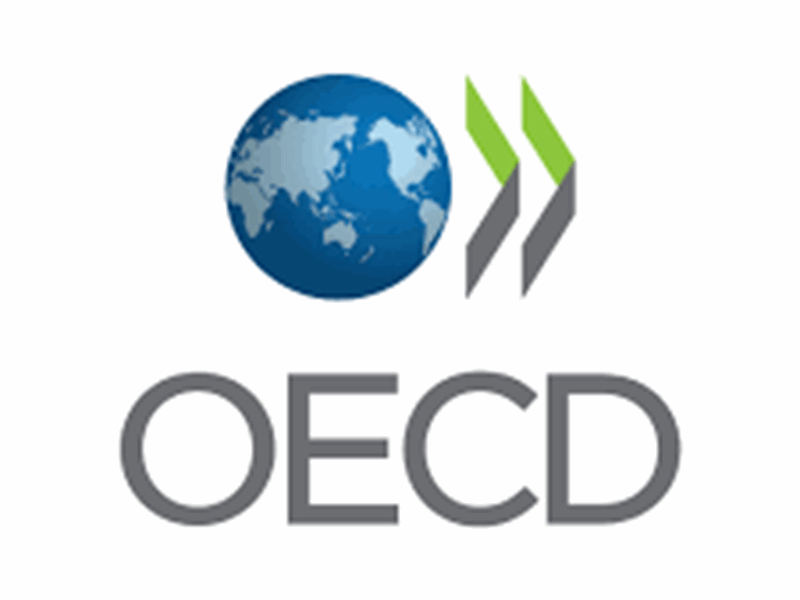Int'l Tax News
Posted on
Swiss Government Opposes New Taxes on Financial Transactions

The Swiss government expressed resistance to using financial transaction taxes to finance the country’s old age pension system.
Posted on
Surprise CAMT Rules on Foreign-Parented Groups Are About Parity

Proposed corporate alternative minimum tax regs’ provisions pertaining to foreign-parented multinational groups, which have caught some tax experts by surprise, were drafted to ensure parity between foreign and domestic entities, according to Treasury.
Posted on
Will the CJEU Go Easy on Ikea?

Robert Goulder comments on the European Commission’s reinvigorated state aid case against the Netherlands and Ikea.
Posted on
EU’s Highest Court Tells U.S. Taxpayers to Pay for a New Marshall Plan

Mindy Herzfeld examines the saga of European state aid cases and the costs of the Court of Justice’s recent decision in European Commission v. Ireland for the U.S. government — and its taxpayers.
Posted on
Legal Service Advises Withdrawal of EU Transfer Pricing Proposal

The EU Council legal service recently warned member states that the draft transfer pricing directive is getting in the way of an agreement on a nonbinding joint transfer pricing forum.
Posted on
Brazil Introduces Domestic Minimum Tax in Line With Pillar 2

Brazilian President Luiz Inácio Lula da Silva has issued a provisional measure providing for a domestic minimum tax intended to be qualified as in line with the OECD’s global anti-base-erosion rules.
Posted on
The U.N. Model Tax Treaty’s Shift Away From Physical Presence: An Analysis of Draft Article XX

Hafiz Choudhury outlines the progress of draft Article XX on fees for services within the U.N. model tax convention’s evolution away from reliance on physical presence.
Posted on
UN Global Tax Talks Duplicating Work at OECD, EU Says

The European Union said negotiations for a new corporate tax treaty at the United Nations were potentially duplicating those taking place at the Organization for Economic Development and Cooperation in Paris.
Posted on
Week in Insights: OECD Needs to Find Pillar Two's Happy Medium

As the OECD continues to promote Pillar Two, balancing the goal of fostering tax fairness with the need to avoid excessive compliance burdens is a challenge.
Posted on
Rachel Reeves to spare PE bosses top UK tax rate in compromise on ‘loophole’

Rachel Reeves, the UK chancellor, is not expected to hit private equity bosses with the top 45p tax rate in this month’s Budget, as she looks for a compromise deal to close tax “loopholes” that does not drive investors out of Britain.
Posted on
European Commission Delivers First Blow to Hungary’s Retail Tax

The European Commission is acting on a complaint by foreign-controlled companies operating in Hungary that the country's discriminatory retail tax regime puts them in a much higher tax bracket than domestic retail franchises operating there.
Posted on
Four EU Member States Referred to High Court for Pillar 2 Delay

The European Commission has referred Cyprus, Poland, Portugal, and Spain to the EU’s highest court after warning them twice about their slow adoption of the EU’s directive for implementing global minimum tax rules.
Posted on
EU member states agree to impose tariffs on Chinese electric vehicles

EU member states have agreed to impose tariffs of up to 45 per cent on imports of Chinese electric vehicles, ratcheting up the biggest trade dispute between the economic superpowers in a decade.
Posted on
Study Suggests a Levy on Companies to Finance EU Agencies

Ten years of case law involving the EU banking union show that the EU has legal grounds to levy a contribution on companies in exchange for services, according to a European Parliament study.
Posted on
Shareholders, Creditors, and GLOBE: A New Perspective

Fabian Kratzlmeier argues that pillar 2’s group approach disregards the interests of creditors and minority shareholders, and he explores how long-standing concepts of civil, corporate, and bankruptcy law could be used to protect those interests within the global anti-base-erosion framework.
Posted on
Apple May Change the Equation for EU Transfer Pricing Directive

Ryan Finley explains why the EU member states may want to reconsider their objections to a transfer pricing directive after European Commission v. Ireland.
Posted on
European Central Bank President Suggests 28th Corporate Rulebook

Christine Lagarde, president of the European Central Bank, said an EU capital markets union could be achieved through a 28th regulatory regime, including on taxation.
Posted on
U.S. Group Backs UTPR Legal Challenge in Belgian Court

The U.S. Chamber of Commerce has expressed strong support for another American business group’s legal challenge against the undertaxed profits rule in the Belgian Constitutional Court, saying the measure is “fundamentally flawed.”
Posted on
UF Tax Incubator: Gutting Subpart F?

Jeffery M. Kadet responds to a recent article on reforms to the subpart F and global intangible low-taxed income regimes, commending the authors’ efforts but arguing that their proposals should be carefully considered, given whom they would benefit.
Posted on
OECD Report Provides Guidance on Crypto-Asset Reporting

The OECD has published guidance for tax administrations on exchanging information on crypto assets. The document, dated Oct. 2, features a user guide for the XML schema used in the automatic exchange of information under the Crypto-Asset Reporting Framework, or CARF.
Posted on
EU Calls for Fair Balance of Interests in U.N. Tax Process

EU member states’ ambassadors are ready to adopt an official position on the future of the U.N. tax negotiations that urges more analysis and consensus-based decision-making.
Posted on
As the Apple Falls: The EU’s Reinvigorated Case Against Nike

Robert Goulder examines the European Commission’s state aid case against Nike in light of the recent Apple judgment.
Posted on
The U.S. Tax System’s Curious Embrace of Manufacturing Job Losses

J. Clifton Fleming Jr., Robert J. Peroni, and Stephen E. Shay explain how the subpart F regime and the global intangible low-taxed income regime together contribute to a long-running decline in domestic manufacturing employment, and they argue that the best approach to fixing the problem is worldwide taxation without deferral, not pillar 2.
Posted on
Confines of Covered Inbound Transactions Under Notice 2024-16

Notice 2024-16 announces the government’s intent to issue regs to provide an adjustment to a domestic acquiring corporation’s basis of acquired CFC stock for covered inbound transactions. Laura E. Williams, Jennifer Franceschini, and Raza Janjua of PwC explain how the narrow definition of covered inbound transactions and the limitations outlined in Notice 2024-16 may leave taxpayers exposed to double taxation in many situations, and argue that future regulations should provide for expanded relief.
Posted on
Ireland Extends Tax Benefits for Investors in Budget

Ireland revealed plans Tuesday to extend a range of tax benefits to attract risk finance into the country as part of a pre-election budget. The Department of Finance is proposing to extend the Relief for Investment in Corporate Trades benefits by two years, a budget document outlining tax measures said, putting them into effect until Dec. 31, 2025.
Posted on
Justice Was Done in Apple

David G. Chamberlain responds to Lee A. Sheppard’s analysis of the EU Court of Justice’s ruling in the Apple state aid case and argues that the Court’s ruling was correct.
Posted on
Argentina's New Tax Incentives to Shore Up Foreign Investments

Argentina’s economic reform law has significant tax implications for various industries. The law, issued by decree on Aug. 22, includes a large investments incentive system known as RIGI. A key feature of the measure is a stability provision for a 30-year period, encompassing tax, customs, legal, and regulatory incentives.
Posted on
Countries Raise Corporate Tax Rates After Years of Decline

Corporate income tax rates across the world stabilized in 2023 after years of decline, according to a new report from the OECD summarizing international taxation trends.
Posted on
French Government Weighs New Taxes on Large Firms, Le Monde Says

The French government is weighing fresh taxes on corporates to cut the country’s budget deficit, newspaper Le Monde reported.
Posted on
Estimating Pillar 2’s Effect on U.S. Multinationals and Treasury Revenue

Thomas Horst explains and illustrates his evaluation of the effect of the OECD/G20’s pillar 2 minimum tax rules on U.S. multinational enterprises and on U.S. federal tax revenue.
Posted on
Ireland Expects €25BN Budget Surplus This Year After Apple Windfall

Ireland’s government expects to post a budget surplus of €25bn this year, boosted by part of the €14.1bn in back taxes from Apple that the EU’s top court this month ordered it to accept.
Posted on
Trump’s Low-Tax, High-Tariff Strategy Could Clash With Economic Realities

The former president’s efforts to compel companies to remain in the United States had limited success while he was in the White House.
Posted on
The Meaning of State Aid Is Anyone’s Guess After Apple

Ryan Finley explains why the Court of Justice was wrong to assume that its understanding of OECD transfer pricing and profit attribution guidance is the only reasonable interpretation.
Posted on
Treasury Downplays FTC Timing Concerns in Corporate AMT Regs

Treasury is not overly concerned with practitioner worries stemming from a lack of carryforwards for direct foreign tax credits and book-to-tax income recognition timing differences under its corporate alternative minimum tax proposed regs.
Posted on
Harris Pledges $100 Billion in Tax Credits to Boost U.S. Manufacturing

The Democratic presidential nominee outlined her economic plans, including tax credits to boost next-generation industries, during a speech in Pittsburgh.
Posted on
German Transfer Pricing Updates Align Arm's-Length Rules, OECD

Germany’s Growth Opportunities Act, applicable as of Jan. 1, highlighted a disparity between the German legislature’s application of the arm’s-length principle for intra-group financing versus OECD transfer pricing guidelines for multinational companies and tax administrations. This has created substantial uncertainty for multinationals, leaving many unresolved questions about application of the new tax legislation.
Posted on
Nigeria Urges UN Action on Tax Treaty Talks

Nigeria urged the United Nations on Tuesday to begin negotiations toward a global tax treaty opposed by wealthier countries because its work would overlap with that of the OECD.
Posted on
Treasury Working on Guidance for OECD Transfer Pricing Rules

The US Treasury Department is working on guidance to apply a set of OECD rules that seek to simplify the way businesses value certain intercompany transactions, a department official said Tuesday. The implementation of the rules, known as Amount B, is on the list of Treasury’s priority guidance projects, said Brenda Zent, special adviser on international taxation at Treasury.
Posted on
Trump Says Plan Will Convince Foreign Companies to Shift Jobs to U.S.

The Republican presidential nominee uses tax breaks and tariff threats in a bid to persuade foreign companies to shift production.
Posted on
Trump Pitches ‘New American Industrialism’ and Luring Foreign Manufacturing

The former president highlighted his plans to increase tariffs and reduce corporate taxes for businesses that make products in the United States.
Posted on
The Apple State Aid Decision: Is This Really About Pillar 2?

Robert Goulder comments on the final decision of the EU’s Court of Justice on the state-aid claim against Ireland.
Posted on
Netherlands, Finland Move to Amend Global Minimum Tax Rules

The Netherlands and Finland both published draft legislation to update their respective global minimum tax laws to include recent guidance from the OECD.
Posted on
Swiss Consider Using OECD's Simplified Transfer Pricing Plan

Switzerland is mulling OECD rules aimed at simplifying transfer pricing methods for certain transactions, also known as Amount B, under the global tax deal. Swiss Competent Authority member Ronny Rosenblatt said that Switzerland may use Amount B as a safe harbor and commit to accept it when dealing with covered countries that are using it.
Posted on
Global Tax Changes Create Challenges and Opportunities for Africa

Tax reforms driven by OECD and UN initiatives are reshaping the international tax landscape and require African economies, governments, and businesses to adapt to an evolving global tax environment.
Posted on
EU Extortion in Apple

Lee A. Sheppard examines the recent decision by the EU’s Court of Justice in the Apple transfer pricing case, arguing that it contradicts the Court’s own precedent and OECD guidance.
Posted on
Treasury’s Latest Effort to Prop Up Pillar 2

Mindy Herzfeld examines recently proposed dual consolidated loss regs and questions whether the regs are justified by the legislative history, or whether Treasury has exceeded its authority under Loper Bright Enterprises Inc. v. Raimondo.
Posted on
Economic Substance: Canadian GAAR and U.S. Administrative Guidance

Rémi D. Gagnon assesses the U.S. experience with the concept of economic substance and draws lessons for the successful development of this concept in Canada in light of the structural differences between the two systems.
Posted on
Countries Start Signing OECD Subject-to-Tax Rule Treaty

Nine jurisdictions have signed a multilateral instrument to implement the OECD subject-to-tax rule, with 10 others to follow, advancing efforts to help developing countries ensure that some cross-border payments are taxed at a minimum rate.
Posted on
Win-Win Tax Partnerships Mean Investment and Growth for Africa

The International Fiscal Association Congress will this year be held in Africa. The timing is fortuitous, as African countries are making significant advances in both modernizing tax administration and pursuing economic growth.
To read more go here Subscription Required
Posted on
Apple Tax Verdict Lets Ireland Move Ahead on Foreign Investment

While the adverse ruling is embarrassing, it’s only temporary. Ireland has a lot of credit in the bank following its moves to abolish the double Irish corporate tax avoidance structure and its embracing of both EU and global efforts to bring in a new set of global tax rules, which should maintain the country’s attractiveness to international investors.
To read more go here Subscription Required


































